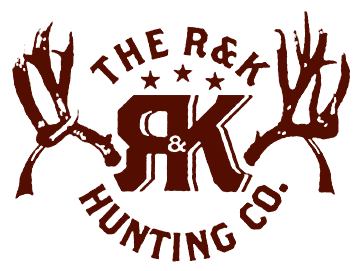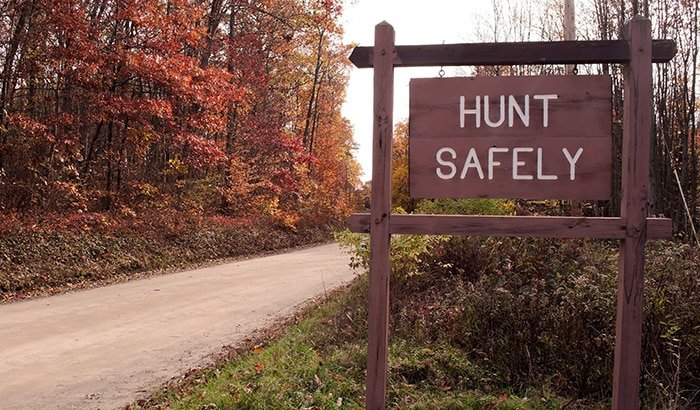If you want to hunt state land in the US, there aren’t many better places to go than Utah. Of the tens of millions of acres in the state, around 75% of the lands in Utah are open to the public.
Not all of this is state-owned land. The State of Utah owns and manages just over 10% of the protected land in the state. The other 65% of public land is governed by the United States Department of the Interior. The Department of the Interior and its agency, the Bureau of Land Management, are responsible for maintaining and conserving the vast expanse of lands in the state.
Hunting laws in Utah permit those with a license and permit to hunt almost anything almost anywhere. Of course, there are heavy stipulations on how many types of animals can be pursued, how the state determines who gets to hunt which animal, and where you can track each animal.
Each year, the Utah Division of Wildlife Resources creates new guides for hunting and fishing. These guides review the laws, required permits, and other valuable tips on hunting procedures to help hunters pursue game responsibly without running into legal trouble.
Availability of Public Lands
The state of Utah is divided up into various subdivisions. Each region has a restricted number of permits available – often called tags – available for each type of animal to protect wildlife populations.
The Division of Wildlife Resources determines the number of tags available each year. These tags are distributed via a lottery-based system during the summer months leading up to hunting season.
Generally, hunting is allowed with proper permits and licenses from September to late November. Hunting on private lands varies from region to region during these seasons. For instance, if you kill a deer on public lands with a private-lands-only permit, you could be cited for poaching for killing an animal in the wrong region.
Before you go hunting, plan well in advance the regions you will be in and know where the boundaries are. Government officials aren’t likely to buy excuses for not knowing the borders you are permitted to hunt within; for the state, this is your responsibility.
Hunting On Private Lands
Hunting on private lands is legal in Utah if, as in public lands, a permit is acquired for the type of animal you are hunting.
Due to the migratory patterns of game animals during hunting season, some private landowners find their lands teeming with game. Meanwhile, hunters on public lands can hardly find a trail to follow.
To mitigate the migration of game animals from public lands to private lands, the State of Utah issues private-lands-only permits for hunters authorized by landowners to track and kill game animals.
It may seem unfair for the state to determine the outcome of hunting on private property, but in the eyes of the government, landowners do not own the animals on their land. Hence the need for a special permit.
Fishing and Hunting Licenses and Permits
In Utah, it is illegal to hunt or fish most animals on public or private lands without a license. There are exceptions made for invasive species and animals considered a nuisance to farmers and ranchers. Game animals are all monitored and protected by government agencies, and killing an animal out of season or without a permit is punishable by fines and possible jail time.
There are two parts to being able to hunt animals in Utah.
- Obtaining a hunting or combination license
- Getting a tag or hunting permit
Obtaining a hunting license or combination license is the gatekeeper for hunting. The basic hunting license allows hunters to hunt the smallest game, including birds and small animals. If applicable, hunters need only follow the state’s guidelines, such as hunting method and hunting limits, if applicable.
Game hunting often requires an additional permit specifying the type and quantity of an animal you may hunt. These are the animals that most hunters display proudly on their walls as trophies.
Due to their limited numbers, government agencies monitoring the environment restrict the number of animals for hunting. Remember that state oversight doesn’t stop at property lines.
Pursuit permits
Any attempt to track, harass, or trap an animal is still considered hunting. Pursuit permits are mainly applicable to predators such as cougars or bears. Depending on how much of a nuisance either of these predators proves to be in local ecosystems, the state may issue tags for hunting.
When permits are released for these animals, the quantity is limited by harvest. In the case of an unsuccessful hunting trip and an unused tag, an extra game animal gets to live another year.
To balance the ecosystem, an animal needs to be killed in some cases. Once the harvest quantity for your location is met, you can still track and stalk animals, but you will need a pursuit permit.
The pursuit permit differs from a hunting tag in that you can track, harass, and otherwise observe and chase animals; you are just not allowed to injure or harm them. Pursuit permits are great for training hunting dogs.
Hunting on State Lands with R&K Hunting
If you are unsure of your luck when you hunt state lands, sign up for a guided hunting trip with R&K Hunting.
When you sign up for a guided hunting trip, you can skip worrying about jumping through the proper bureaucratic loops to get your desired permits. We help you take care of all the planning, so the most you need to worry about is arriving on time.
As for finding the best locations to hunt, our ranch covers more than a hundred square miles of pristine Utah wilderness. There is no need to fear straying onto the neighboring government and private lands with all this space on our ranch and being assisted by a personal hunting guide.
Sign up for a private hunting trip when you’re ready for the hunting trip of a lifetime!

